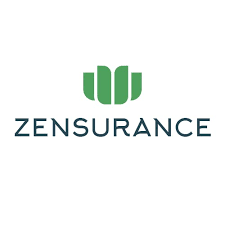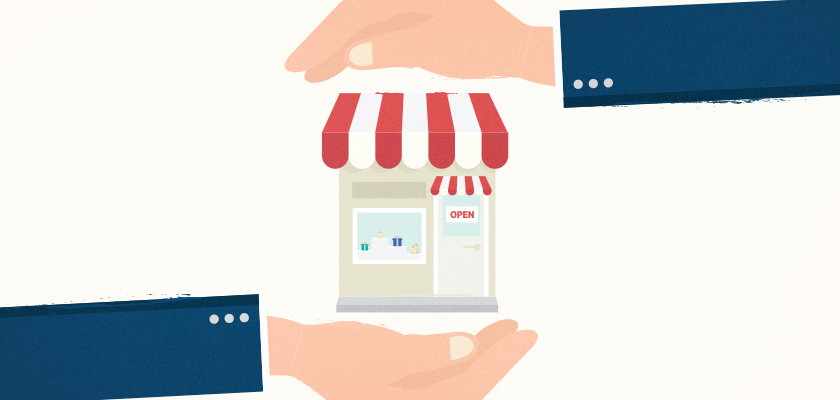Become an insider!
Get our latest payroll and small business articles sent straight to your inbox.
Commercial insurance is vital for managing business risk. But since no one can predict the future, shopping for a business insurance policy quickly becomes a nerve-racking game of, “Do I need this or not?”
This anxiety about business coverage is justified. Business owners are in danger of either under- or over-insuring their businesses. The former leaves you exposed, while the latter stretches your already tight budget.
How Can I Choose The Right Amount of Insurance Coverage For My Small Business?

Image via Pexels
Unfortunately, there’s no crystal ball for risk. If there were, insurance companies wouldn’t make any money. But that doesn’t mean shopping for commercial insurance is a total shot in the dark. There are several strategies to use while searching for commercial insurance.
- Take an inventory of your business’ risks: Create a list of potential losses or liabilities. This includes any property (including your house if you run your business out of your home), vehicles, equipment, or supplies that are vital to your business. Don’t forget risks like a data breach or death of a key employee.
- Separate the personal from the commercial: This is especially important if you’re still small and using your car or home for business purposes. Your personal policy won’t cover you if there are damages due to commercial activities.
- Explore premium reduction strategies: Ask your broker what you can do to lower your premiums. Don’t cut corners by excluding a policy you need. Instead, ask about discounts for purchasing multiple policies from the same provider or consider steps you can take to reduce your risk profile.
- Find a broker who understands your industry: Not all brokers are alike. A restaurant has different needs from a laundromat, and you want a broker who has experience selecting the right policy for businesses like yours.
What Kind of Insurance Should a Canadian Small Business Owner Have?
Once you’ve made a list of everything your business needs to cover, it’s time to match those assets and risks up to the right insurance policies. If this is your first time looking for commercial insurance, the difficulty is knowing what kind of insurance options exist. For instance, you may not know that coverage for lost revenue due to a cyber, data breach, or burglary — business interruption insurance — is even an option.
To get you started, here is a list of common commercial insurance policies, so you can familiarize yourself with what’s out there:
- Commercial property insurance
- General liability insurance
- Professional liability insurance
- Commercial auto insurance
- Cybersecurity insurance
- Directors and officers insurance
- Crime insurance
- Business interruption insurance
- Key person insurance
1. Commercial property insurance
Commercial property insurance is a must for any business with physical assets. With the possibility of catastrophes like a flood, fire, vandalism, or theft, it’s a fool’s bet to cheap out on business property insurance. The kind of coverage you seek depends on how much property you need to insure, and this is a vital area where business owners make the mistake of under-insuring.
Sure, a policy that only covers and protect your business and building may seem like enough, but what about the equipment and inventory stored within the building? How about the signs located outside the building? Think about it this way: If your business can’t run without it, make sure it’s covered under your policy, so you can afford to fix or replace it.
2. General liability insurance
Even the most cautious business owners can find themselves in hot water due to unexpected lawsuits caused by an accident or a product issue. That’s right, your business can be held liable for damage caused by your product or your employees, or injuries at your office, storefront or place of business.
This is where general liability insurance has your back. All it takes is bodily injury or one big claim to sink the business you worked hard to build up, so invest money into protecting it. Depending on your policy, your general liability insurance covers the cost of defending yourself against injury and damage lawsuits in addition to paying any claims.
3. Professional liability insurance
Professional liability insurance sounds similar to general liability insurance, but don’t make the mistake of thinking they’re the same thing. Whereas general liability insurance covers accidents or negligence (i.e. a customer slipping on a wet floor and breaking their wrist), professional liability insurance covers the negative consequences of a professional’s service or advice. For example, if you’re a consultant and you give a client advice that tanks their business and they hold you responsible, professional liability insurance covers the costs of a lawsuit and damages. This insurance
Professional Liability insurance should be purchased by anyone giving professional advice or services. Businesses in industries such as accounting, consulting, law, engineering, would purchase this kind of a commercial general liability policy.
4. Commercial auto insurance
If your company regularly transports people or products, your vehicles are essential to day-to-day operations. Your business may not have thousands of dollars to put towards repairs if there’s an accident that results in damages. Whether it’s a couple of vans or several trucks, be sure to find commercial auto insurance for your business’s vehicles. Companies that own multiple vehicles should consider putting them all under a commercial fleet insurance policy rather than insuring them individually. In Ontario, at least five vehicles constitute a fleet.

Image via Pexels
5. Cybersecurity insurance
Today, businesses large and small rely on computers and data to run their business. This makes virtually all enterprises a potential target for hackers. About 43 percent of cyber attacks go after small businesses.
Large corporations have the funds to bounce back from cyber attacks, but your small business likely doesn’t have that luxury.
Exploring cybersecurity insurance options is useful because it helps in a number of ways.
If important files are held hostage by ransomware, a cybersecurity insurance policy can pay off the ransom. If a hacker accesses sensitive customer information, your cyber risk policy can cover the cost of credit monitoring or legal fees if you’re held liable.
Be mindful of what exactly you’re covered for, and what the triggers for coverage are. For instance, if a hacker tricks an employee into giving access to your network, you don’t want to learn after the fact that your own insurance company doesn’t cover social engineering fraud.
6. Directors and officers (D&O) liability insurance
Directors have three basic duties: Duty of Diligence, Duty of Loyalty, and Duty of Obedience. Failure to meet these duties, even if it’s out of ignorance, can expose directors to potential claims. The proactive approach is to make sure directors understand their role and responsibilities, but sometimes this isn’t enough. Securing a directors and officers insurance policy covers these individuals in case of a lawsuit. D&O insurance is highly recommended for nonprofit organizations.
7. Crime insurance
How will you cover the losses if an employee defrauds your company or steals from your business? It’s a sad scenario to consider, but business owners can’t afford not to think about it. Crime insurance helps protect you against any financial losses that result from an employee who’s less than honest. Based on the nature of your business, you can cover yourself for several possibilities including losses from property theft, forgery, computer crime, and more.
8. Key person insurance
Does the thought of losing a certain employee make you break out in a cold sweat? Maybe you are that vital employee. As the owner, you put in a lot of time and energy, so if you stop working due to an accident or illness, the entire enterprise might come crashing down.
This is where key person insurance comes in. Let’s say you or your sole engineer become extremely ill and you don’t have the time or money to train someone new. If you’re covered under a key person insurance policy, you’ll get the money needed to hire and train someone new. Small businesses that employ people with highly specialized knowledge or training should definitely look into key person insurance policies.
9. Business interruption insurance
Last, but certainly not least, is business interruption insurance. Generally speaking, the types of insurance mentioned above cover direct losses. A basic property insurance policy will cover the cost of damages to your store or a basic cybersecurity policy will cover customer notifications, data breaches and credit monitoring.
But what about the money you lose while cleaning up after a flood or getting your network up and running again? Either scenario can have your company out of commission for days – in some cases weeks! Business interruption insurance helps make up for this lost revenue, so you’re not scrambling to make ends meet.

Photo by Tim Mossholder from Pexels
What Mistakes Do Small Business Owners Make When Purchasing Commercial Insurance?
In addition to over- or under-insuring, business owners make other critical mistakes that cause them to overpay for insurance.
For starters, don’t settle for purchasing all of your insurance (personal and commercial) through one provider unless there’s an excellent reason for doing so like a discount on your premiums. Comparison shop and do the leg work to see if there’s anything better out there.
Furthermore, don’t simply accept the first policy your broker shows you. While you want to assume your broker has your best interests in mind, remember that they collect commissions off the policies they sell and some brokers have pre-existing relationships with providers.
On that note, once your policy comes up for renewal chances are your rates will increase. Keep in mind that your broker still collects a commission, so reach out to see if they can negotiate a lower rate for you. If they can’t (or they don’t reach out to you at all at renewal time), don’t just accept the higher rate — shop around.
Remember: You are paying your broker to be the expert, so don’t be shy about asking questions. If there’s anything you don’t understand about a proposed policy, keep asking for clarification until you’re comfortable with the terms.
Give Yourself Greater Peace of Mind
The hunt for commercial insurance is an anxious journey, but it gives you peace of mind in the long run by managing your company’s risk. Nowhere is the adage “better safe than sorry” more applicable than in the world of commercial insurance, so take the time to research the best options for protecting your small business.
 We’d like to thank Zensurance — rated the most innovative company of 2016 by Canadian Innovation Exchange — for this most excellent post on the basics of small business insurance and for helping to take the pain and paperwork out of the insurance process.
We’d like to thank Zensurance — rated the most innovative company of 2016 by Canadian Innovation Exchange — for this most excellent post on the basics of small business insurance and for helping to take the pain and paperwork out of the insurance process. 











